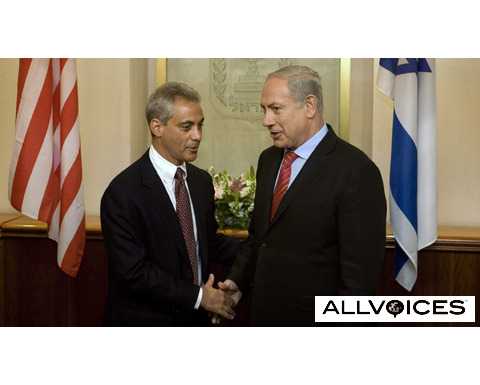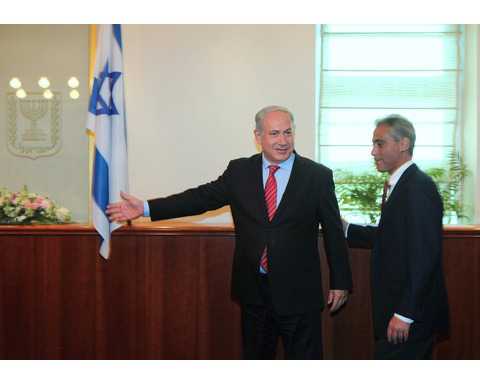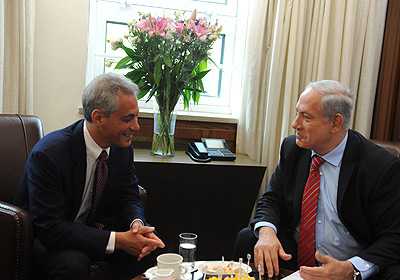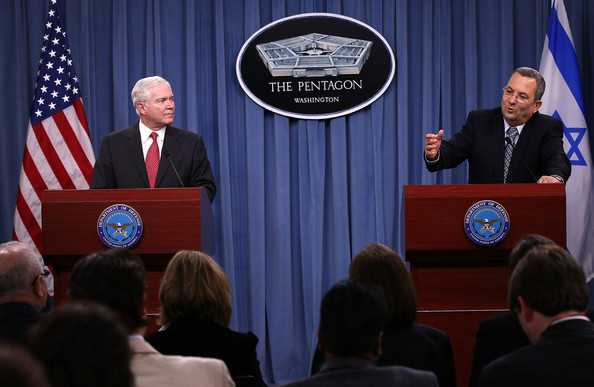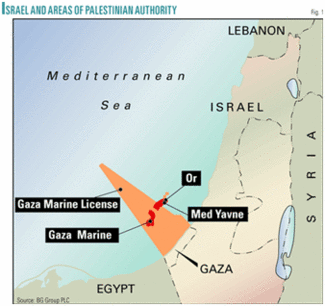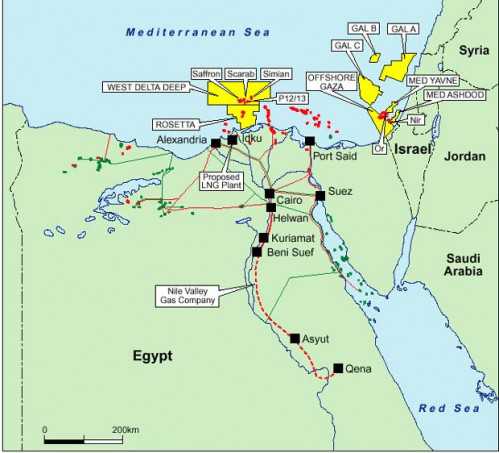The Israeli commandos who stormed a flotilla of aid ships were expecting a cakewalk – but then the bullets began to fly
Uzi Mahnaimi and Gareth Jenkins
Published: 6 June 2010
Video footage, released by the Israelis, shows the commandos being attacked on the aid shipIstanbul’s face has changed radically over the millennia — Greek, Persian, Roman, Byzantine, Ottoman, Turk — but it remains one of the world’s great cities, home to a cosmopolitan and enlightened elite. There is also another Istanbul, however, one that last week lured Israel into scoring a spectacularly violent own goal and advanced the cause of militant Islam.
In the heart of the city, not far from the famous Blue Mosque and the shopping district of Nisantasi, which attracts visitors from western Europe, is Fatih, a fundamentalist stronghold where westerners are treated with suspicion and the clothing and customs speak of the Middle East.
For most of the members of Turkey’s secular middle class, who spend their lives in the air-conditioned offices and apartments, glitzy shopping centres, cafes and bars of the city’s upmarket neighbourhoods, Fatih’s narrow streets and chador-clad women could just as well be in a foreign country. Few have visited Fatih and most would laugh at the thought of it.
But it is from Fatih that Turkey’s most Islamist radical groups and organisations co-ordinate their activities and publish books and magazines extolling the virtues of a strict Islamic lifestyle — and, in many cases, openly calling on their young male readers to support the global jihad against the West.
Fatih is the headquarters of Insan Hak ve Hurriyetleri (the Foundation for Human Rights and Freedoms and Humanitarian Relief, or IHH) — a name that has gone round the world since Israeli commandos killed at least nine of its activists early last Monday on a boat carrying relief supplies for Gaza.
IHH draws many of its members not just from Fatih but also from the shanty towns that encircle the sprawling city of 14m. Many are migrants from the countryside who have brought with them the conservative Islamic values of rural Anatolia.
Last week’s deadly confrontation in the eastern Mediterranean pitted a band of these tough young men — spoiling for a fight, in the opinion of one non-Turk who was on the boat — against a unit from Israel’s military elite that had no idea what it was taking on. Israeli special forces marines — who thought the task was beneath them because they had been told to cow the Turks with paintball guns — suddenly feared for their lives and started firing real bullets.
How could such a catastrophic miscalculation occur? And what really happened when Israel took on the Mavi Marmara as it cruised towards Gaza? Some of the accounts are partisan, lurid and wildly contradictory, but by the end of the week a plausible narrative was beginning to emerge.
Intelligence was good. We knew about all ships, their names and even specific information about some of the militants on boardFlotilla 13, Israel’s SBS-style navy frogmen, are respected as among the best of the world’s special forces. Last year the deputy commander of their frogman school, a captain, was sent on a daring operation in the eastern Mediterranean. Sailing on a millionaire’s yacht to disguise their activity, he and his men crossed into Syrian waters just after dark, not far from the port of Tartus. Next morning they reached their operational location about a mile from a line of villas belonging to the Syrian elite.
Several commandos were sunbathing on deck, posing as tourists, when the spotters hidden on board detected a movement in the garden of one of the villas. A specialist sniper, armed with a long-range gun equipped with a silencer, was called to the upper deck.
The middle-aged Syrian general was sunbathing, fearless, in his back garden. His unsuspecting bodyguards controlled the front garden and the entrance. A single bullet was fired. No sound was heard. The general, in charge of arms sales to Hezbollah and liaison officer to North Korea, slumped back.
Before his family discovered that he was dead and not asleep, the yacht slipped into international waters. President Bashar al-Assad of Syria heard the bad news over the telephone while visiting Iran. Just before dawn, the yacht reached Flotilla 13’s base near a beautiful bay and impressive crusader castle in northern Israel. It was returned to its Israeli owner and the captain awaited his next mission.
Three weeks ago, when he was called to the briefing room, he expected another daring operation, perhaps a night-time underwater assignment to one of the Iranian ports. But when the bald-headed Flotilla 13 commander introduced the assignment, the captain was flummoxed. Some peace activists were planning to break Israel’s three-year-old blockade of Gaza with a flotilla of small ships carrying food aid, building materials and other supplies. Flotilla 13’s mission was to stop them. He was to command one of the forces boarding the largest ship, the Turkish Mavi Marmara.
What kind of mission is this, he asked, to board a passenger ship? Someone must have got it wrong, he suggested, they were not the coastguard but the most highly trained soldiers in the Israel Defence Forces (IDF). Send the police instead. His commander was adamant. These were the orders from the big guys.
Flotilla 13 is a small brigade with heavy-duty missions. But as from three weeks ago, all cross-border operations were called off and everyone was focused on stopping the “peace flotilla”. “Intelligence was good,” the captain said last week during a debriefing. “We knew about all ships, their names and even specific information about some of the militants on board.”
They were told to prepare for minor resistance from passengers. Paint guns and Taser-type weapons, which they had never used, would suffice.
Because the operation was unprecedented for the commandos, they underwent several strange briefings. A psychologist told them how to deal with civilians. A lawyer explained to the stunned commandos the legal aspects of their operation. Then came a man from the foreign ministry in a three-piece suit and tie. The commandos, some of them still in swimming gear and wetsuits, gave him a friendly welcome. He was followed by the more familiar intelligence briefing and technical elements.
The captain and his men held a rehearsal. Fifty civilians were loaded onto ships and the commandos “took over”. One of them recalled: “It was a nice day out in the Mediterranean.”
The real thing began last Sunday evening. Those assigned to helicopters arrived at an air force base. Those who would be in the “Morenas” — the frogmen’s special high-speed boats — mustered at Ashdod navy base.
Out at sea four small boats carrying international peace activists who had set out from Cyprus had a rendezvous with the Mavi Marmara, which had set sail from southern Turkey. It was under the control of the IHH, which Israel regards with deep suspicion as an associate of Hamas, the Palestinian militants in Gaza. But there were non-Turks among about 600 people on board, including Sarah Colborne, director of campaigns and operations at the Palestine Solidarity Campaign in London.
“We had assembled all the boats in international waters,” she said on her return to Britain last week. “At 11pm that night, Israeli naval boats were detected on the radar and sighted and a decision was made to move further back into international waters.
“We managed to get some broadcasts out that we were on a humanitarian mission, that the United Nations had called for ships to be sent with humanitarian aid to break the blockade on Gaza, that we were simply undertaking that goal. An emergency medical room was assembled and we were all told to put lifejackets on to prepare for any attack.”
Another Briton, Theresa McDermott, an Edinburgh postal worker and member of the Free Gaza Movement, was alongside the Mavi Marmara in the fleet’s smallest boat, Challenger 1.
“The skies were clear and there was a full moon. Their boats had the lights on, so on either side of us we could see two large vessels on the horizon. They were shadowing us all the way, and one of the photographers on board got a picture of a military frigate. They followed us through the night and most people went to sleep. I was up on the top deck keeping watch and trying to make sure they weren’t sneaking up on us.
“At 2am we realised one of their boats had come right up the back of the flotilla, but then it dropped off again. They were trying to make us feel nervous. It went very quiet, then at 4am we heard people starting their morning prayers on the Mavi Marmara. We were right next to them so we could hear the prayer call. It was still dark, then all of a sudden we saw smaller lights across to starboard and we knew the Israelis had dropped the smaller boats, carrier craft, into the water.
Both of them are talking in codes and language from their days with the special forces that no one can understand“They went for the Mavi Marmara first, with Zodiac commando boats that sliced through the flotilla. The Israelis started firing smoke bombs and sound grenades onto the Mavi Marmara. We heard the cracks of gunfire and I realised they were much more forceful than when they have taken us off boats before. They were coming really hard.”
Israel’s prime minister, Binyamin (Bibi) Netanyahu, spent last weekend in Canada, where he was supposed to be preparing for a meeting on Tuesday with Barack Obama.
On Sunday all thoughts of it were set aside and a full operations room was established to let him control the events about to take place off Gaza.
The first call on his secure line — codename Mountain Rose — was put through late on Sunday to Ehud Barak, the Israeli defence minister, sitting in the operations bunker at IDF headquarters in Tel Aviv.
The relationship between Bibi and Ehud goes back more than 40 years. Barak was a commander of Israel’s equivalent of the SAS and Bibi was one of his young officers. In 1972 they were among the commandos who stormed a hijacked Sabena jet at Tel Aviv airport. Bibi was injured by a bullet in his hand. Barak went untouched. Ever since, Netanyahu has regarded him as his mentor.
After they went into politics, Netanyahu became leader of Likud and Barak leader of the Labour party. But as prime minister in a coalition government, the rightwinger rarely opposes his old commander’s recommendations. “Both of them are talking in codes and language from their days with the special forces that no one can understand,” complained a cabinet minister recently.
Once again they had kept the government out of the loop about the peace flotilla. The seven members of the inner cabinet, known in Israel as the “Septet”, had been told individually of the general idea to storm the ships but were given no details.
Netanyahu now wanted to know if all military preparations were going well. Barak assured him everything was under control. It was only then that Netanyahu made telephone calls to world leaders to explain the delicate situation. David Cameron took his call at 10pm London time.
In Israel the frogmen got into their Black Hawk helicopters. “Normally, before an operation, we sit in the choppers silent like the grave. We are tense and worried,” said one of them later. “This time we were in high spirits, talking and cracking jokes.”
Another soldier gave his account: “You climb in according to your prepared order. I was the sixth from the left-hand side. One before last. We had a pleasant night flight of about 40 minutes. Once arrived, I took the rope and jumped — about 20 metres of descent.”
It was 4.10am Monday Israeli time. Vice-Admiral Eli Marom, the Israeli navy commander, was in one of the Morenas speedboats only 50 yards from the Mavi Marmara. He took out his handgun and shot three times in the air. Operation Sky Winds had begun.
Three Israeli commandos landed on the upper deck of the Mavi Marmara where young Turks “started resisting naturally … like anyone who feels his life is threatened”, said Abdul Razzaq Maqri, a former Algerian parliamentarian who was on the ship.
The first Israeli officer was badly beaten and lost consciousness. The next two were beaten, tied up and hustled away to a lower deck. One of the Israelis said later: “Once I’d landed on the upper deck I noticed two terrorists beating one of our guys with a metal bar. I jumped on them, pushing them aside, but immediately they turned on me and began beating me.”
Their captain and the rest of his force, unaware of the situation, were still landing on the upper deck one after another and receiving the same treatment. The first Israeli to understand the situation was a young soldier monitoring live images from the scene. “They are smashing the fighters,” he was heard shouting. “They’re giving them hell.”
An officer in the command room asked: “Who is smashing whom?”
“The Arabs … the terrorists … these people … they are giving hell to the fighters.” He paused. “They threw him [a soldier] from the upper deck!”
On his speedboat, Marom heard over the communications system the tense voice of one of his commando officers on board: “They are using real arms, I repeat, they are using real arms. Request permission to use handguns.”
In Tel Aviv, Barak was watching events live on a monitor and heard the request. Next to him was Lieutenant-General Gabi Ashkenazi, the commander of the IDF. Barak whispered: finish this at once. Netanyahu, calling from Canada, was ignored.
This was the moment when the commandos “switched the hard disk”, as one of them described it, stopped trying to be policemen and slipped the leash. Reports that one soldier, a staff sergeant, killed six Turks with his handgun have been denied by the IDF. But several militants from the IHH were soon dead on the deck.
Maqri remembers a shot ringing out and a fellow Algerian activist crumpling, bleeding from an eye. Colborne, who had been woken from a brief sleep by the sound of the attack and rushed to the top deck, saw the first fatality: “He was shot in the head. I saw him. He was obviously in a very bad way and he subsequently died. There were bullets flying all over the place when I was on the top deck and I took the decision to go downstairs.
“I couldn’t quite believe they were doing what they were doing. There was live ammunition flying around and I could hear the sounds of the bullets flying and the whir of the helicopter blades as people were dropped down onto the roof. What I saw was guns being used by the Israelis on unarmed civilians.”
The Israeli commandos stormed the control room of the ship. “The door was closed and I opened it with a strong kick,” said their captain. “The skipper was standing there talking to me, I think in Turkish. I ordered him in English to turn off the engine. He refused. I put the handgun to his throat. He got the hint. The engine was switched off. I informed the command that we controlled the ship.”
It was only then that Barak asked to be connected to Netanyahu. All under control, he said, in the slow charismatic voice that Netanyahu adores so much from their days of cross-border operations. Only a minute later Barak regretted making his report. Marom was on the line now. Three soldiers are missing, he told Barak. We’re searching for them.
Hamas has held an Israeli soldier, Gilad Shalit, hostage for four years and his plight has turned Israel upside down. Did three of Barak’s best men face another agonising hostage situation? As usual, under stress, he was calm. “Freezing ice is in his veins, not blood,” said one of his former subordinates, trying to describe his behaviour during operations.
On board the Mavi Marmara, commandos rushed the lower decks to search for their friends. Andre Abu-Khalil, an Al-Jazeera TV cameraman, said the Turks “took the wounded Israeli soldiers to the lower decks. Twenty Turks made a human shield to prevent the Israeli soldiers from approaching. They knocked on the metal walls to warn them not to advance.
“Then, using a loudspeaker, they said to the Israelis that the soldiers would be freed only after the IDF provided medical help to the wounded people.”
The Israelis went on searching, said Abu-Khalil. “It took about 10 minutes till the Israeli soldiers opened fire. One of the people got a bullet in his head; the other was shot in his neck.”
The commandos stormed the machine room, killing militants guarding it, and found a wounded soldier chained to one of the pipes. The two others had managed to escape, jumping from a porthole into the sea. Marom called Barak: all soldiers found. There were nine civilians dead.
“At 5.15am we started broadcasting over the Tannoy for help to evacuate the critically injured,” said Colborne. The civilians dragged the casualties to an inner hall and closed the door behind them.
One of them, Hanin Zuabi, an Arab Israeli MP, spoke to one of the soldiers in Hebrew. “She asked me to take care of their injured people. I told her, ‘I’m not willing to get in there as I’m not sure they don’t have weapons, but we will take care of the wounded. Please, stay at the door and make sure only wounded will get out’.”
The Israelis say that during an initial search of the ship they found weapons, gas masks, ceramic flak jackets, written instructions and thousands of dollars in cash. “It was clear that they were very well prepared for resistance,” said one defence source.
They came up with a razor and a little knife that you use to open boxes and they said they had found weapons. We laughed at this point. What else could you doIsraeli intelligence is adamant that the IHH is a fundamentalist group affiliated with Hamas and Al-Qaeda. Hamas was an Islamic humanitarian organisation that developed a military wing. Israeli security suspects the IHH of following the same path.
One of the western activists on board said anonymously later that some young Turks had clearly been spoiling for a fight. But the ages of the dead — a 19-year-old, three men in their thirties, two in their forties, a 54-year-old and a 60-year-old — indicate that the clash was not confined to young militants. Most were killed in classic special forces style by several shots to the head and torso.
Other vessels in the peace flotilla had been overcome with much less violence — although some on board reported being beaten and Tasered.
On one of them, the Sofia, was Henning Mankell, the Swedish thriller writer. He felt that the masked and armed Israelis who took it over were ashamed of what they were doing. At least two of them were women.
He said: “I think in one way the soldiers were very disciplined, but if you looked at the eyes of the women they were not terrified but they looked as if they felt really like, shit — what the hell am I doing here?
“We asked why they did it and they said we had weapons aboard. We said we don’t have any weapons so they made a search of the ship. They came up with a razor and a little knife that you use to open boxes and they said they had found weapons. We laughed at this point. What else could you do.”
The boats in the flotilla were taken to Ashdod where agents of Shin Bet, Israel’s internal security service, began to interrogate what they suspected was a hard core of IHH militants from the Mavi Marmara before releasing everyone under international pressure.
In Canada, Netanyahu cut short his trip and returned to Israel, where he faced unprecedented criticism. Western governments lined up to condemn the operation and security experts asked why the Israeli intelligence service had not infiltrated the Turks or sabotaged the Mavi Marmara.
It was suspected of sabotaging at least two of the smaller vessels, which suffered steering difficulties. One of them, the Irish-sponsored Rachel Corrie, with Mairead Maguire, the Nobel peace prize laureate, on board, stayed behind for repairs and did not approach Gaza until yesterday morning. It was stopped without violence by an Israeli boarding party.
Israel has rejected much of the criticism of Operation Sky Winds, but the Israeli defence establishment, long friendly with the Turkish military, is extremely worried. Turkey’s government, itself religiously based, has aligned itself with public anger. Reports to the Israeli defence ministry indicated that it might close down an Israeli intelligence station based on Turkish soil, not far from the Iranian border.
“If that happens,” said a well-informed Israeli source, “Israel will lose its ears and nose, which watch and sniff the Iranians’ back garden.”
It would mean that Israel’s botched Gaza blockade had weakened its defences against the much graver threat of an Iranian nuclear bomb.
Additional reporting: Jamie McGinnes and Jon Swain






